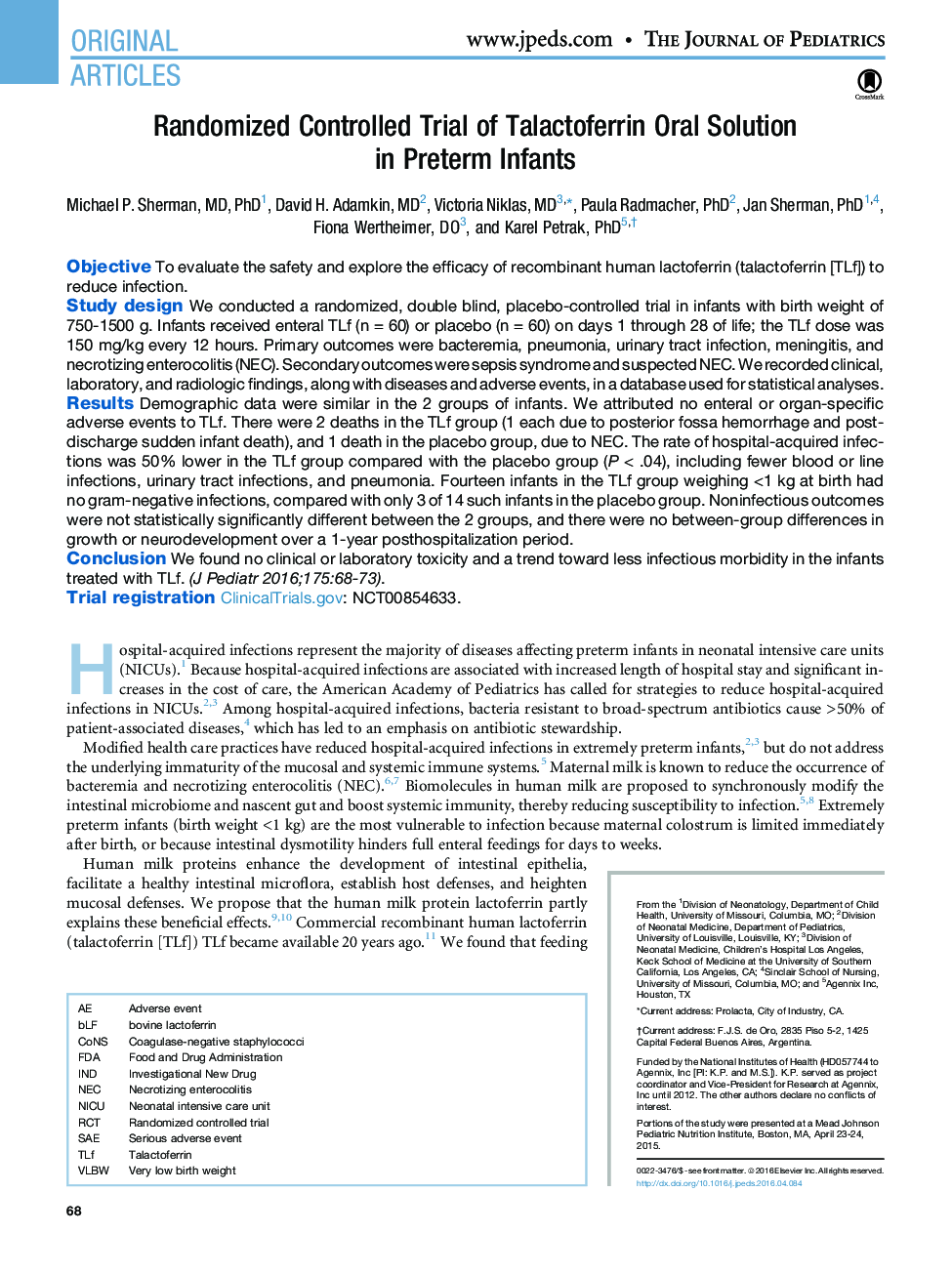| Article ID | Journal | Published Year | Pages | File Type |
|---|---|---|---|---|
| 6219308 | The Journal of Pediatrics | 2016 | 9 Pages |
ObjectiveTo evaluate the safety and explore the efficacy of recombinant human lactoferrin (talactoferrin [TLf]) to reduce infection.Study designWe conducted a randomized, double blind, placebo-controlled trial in infants with birth weight of 750-1500 g. Infants received enteral TLf (n = 60) or placebo (n = 60) on days 1 through 28 of life; the TLf dose was 150 mg/kg every 12 hours. Primary outcomes were bacteremia, pneumonia, urinary tract infection, meningitis, and necrotizing enterocolitis (NEC). Secondary outcomes were sepsis syndrome and suspected NEC. We recorded clinical, laboratory, and radiologic findings, along with diseases and adverse events, in a database used for statistical analyses.ResultsDemographic data were similar in the 2 groups of infants. We attributed no enteral or organ-specific adverse events to TLf. There were 2 deaths in the TLf group (1 each due to posterior fossa hemorrhage and postdischarge sudden infant death), and 1 death in the placebo group, due to NEC. The rate of hospital-acquired infections was 50% lower in the TLf group compared with the placebo group (PÂ <Â .04), including fewer blood or line infections, urinary tract infections, and pneumonia. Fourteen infants in the TLf group weighing <1Â kg at birth had no gram-negative infections, compared with only 3 of 14 such infants in the placebo group. Noninfectious outcomes were not statistically significantly different between the 2 groups, and there were no between-group differences in growth or neurodevelopment over a 1-year posthospitalization period.ConclusionWe found no clinical or laboratory toxicity and a trend toward less infectious morbidity in the infants treated with TLf.Trial registrationClinicalTrials.gov: NCT00854633.
